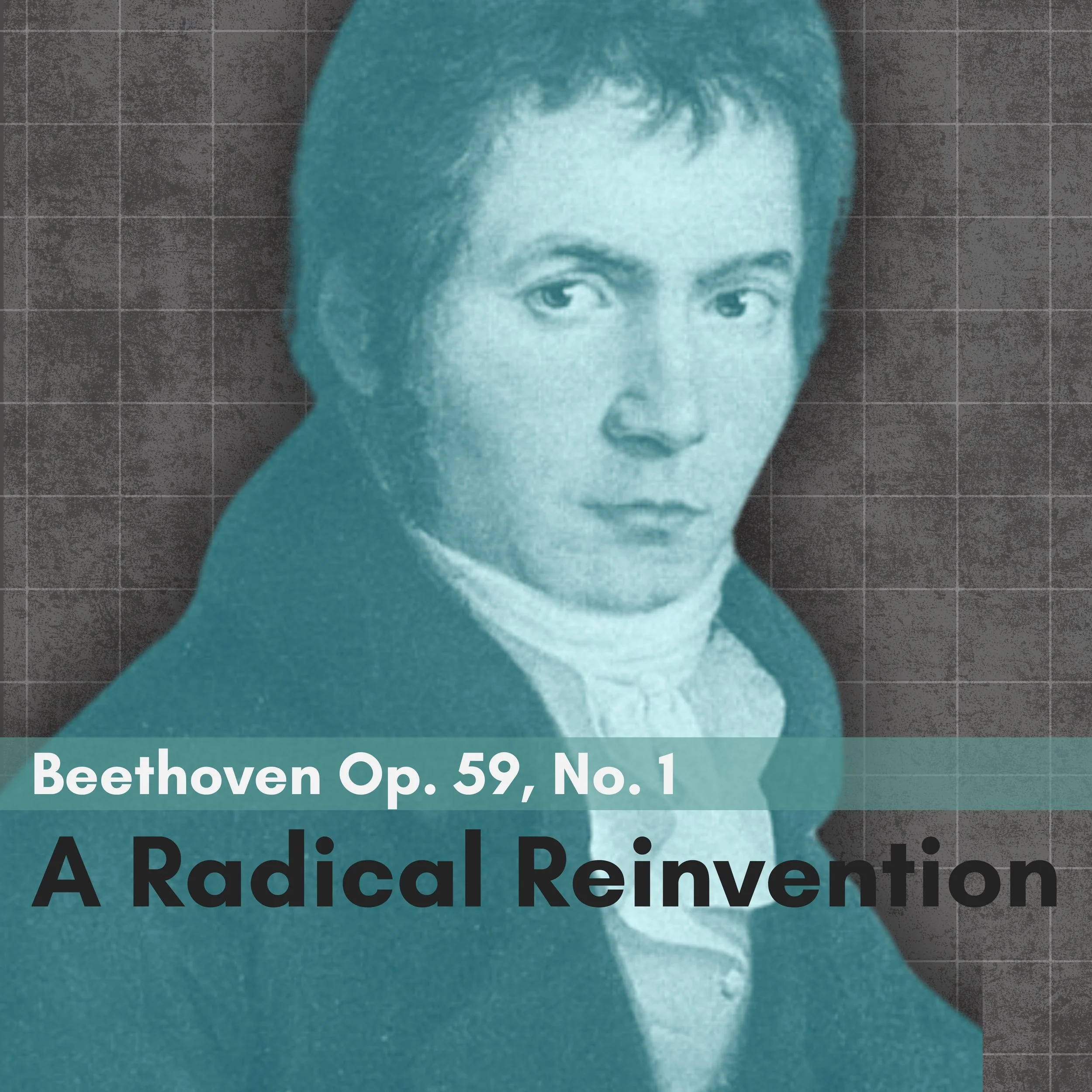
Beethoven’s Razumovsky Quartets
Beethoven’s Razumovsky Quartets mark a turning point in his life and in the history of chamber music. Born from personal crisis and bursting with radical new ideas, these works expanded the quartet to symphonic scale while keeping its intimate spirit. Discover how Beethoven transformed struggle into one of the most powerful reinventions in music.

Beethoven Op. 18, No. 5: An Introduction
In the late 18th century, the string quartet emerged as a pinnacle of musical expression for composers. Beethoven, inspired by the masterpieces of Haydn and Mozart, set out to craft his own distinctive voice within the genre. In this post, we introduce Beethoven's String Quartet in A major, Op. 18, No. 5, exploring its historical context and the influences of Mozart. Read more to discover how this remarkable work pays homage to the greats while signaling Beethoven's innovative spirit, setting the stage for his revolutionary contributions to classical music.

Mozart’s Quartet K. 464: Introduction
Explore how inspiration shaped Mozart’s String Quartet K. 464, a masterpiece born from his admiration for Joseph Haydn. In this blog, we delve into the story of how Haydn’s groundbreaking Op. 33 Quartets spurred Mozart to create his own set of six quartets, culminating in the elegant and masterful K. 464. This work not only honours Mozart’s friendship with Haydn but also inspired Beethoven, leaving a lasting legacy in the chamber music literature.

Alexander Borodin
Alexander Borodin, born in 1833 in Saint Petersburg, was a renowned doctor and chemist, as well as a notable composer. A member of “The Five,” alongside Balakirev, Cui, Mussorgsky, and Rimsky-Korsakov, he aimed to create a distinctly Russian musical style. His Second Quartet, composed in 1881 and dedicated to his wife Ekaterina Protopopova, is celebrated for its beautiful themes, lively scherzo, and emotionally rich Notturno. The quartet concludes with a vibrant and inventive finale, reflecting Borodin’s unique blend of affection and musical innovation.

